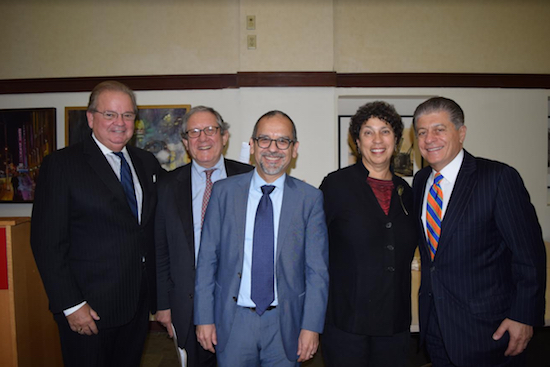Brooklyn Law School event focuses on what’s next for U.S. Supreme Court

Brooklyn Law School continued its series of Constitution Day events this past Thursday, when members of its constitutional law faculty gathered in the student lounge for a presentation and Q&A session on what to expect from the U.S. Supreme Court over the next year.
“Two hundred-twenty-nine years ago, at the conclusion of the Constitutional Convention in Philadelphia, Ben Franklin was asked, ‘What have you created?’ and he responded, ‘A republic, if you can keep it,’” said President and Dean of Brooklyn Law School (BLS) Nicholas Allard. “His observation, at this moment in our history, really resonates today, as we find ourselves today grappling with the presidential election that is taking place against a backdrop of tumult and uncertainty in our country.”

Brooklyn Boro
View MoreNew York City’s most populous borough, Brooklyn, is home to nearly 2.6 million residents. If Brooklyn were an independent city it would be the fourth largest city in the United States. While Brooklyn has become the epitome of ‘cool and hip’ in recent years, for those that were born here, raised families here and improved communities over the years, Brooklyn has never been ‘uncool’.